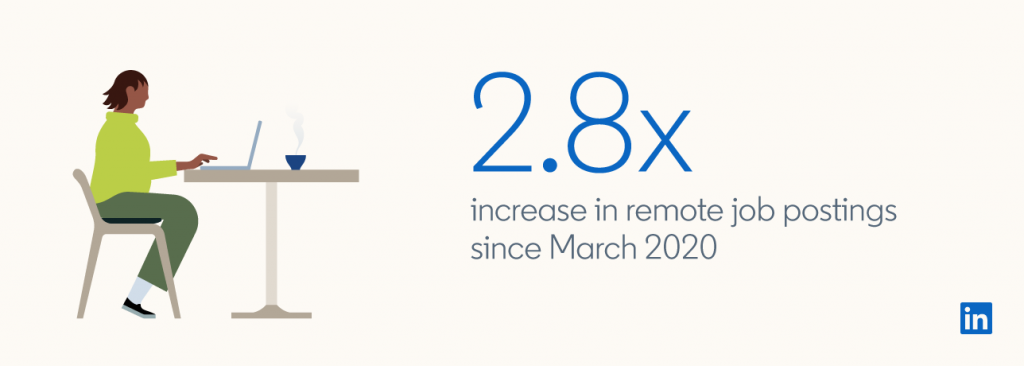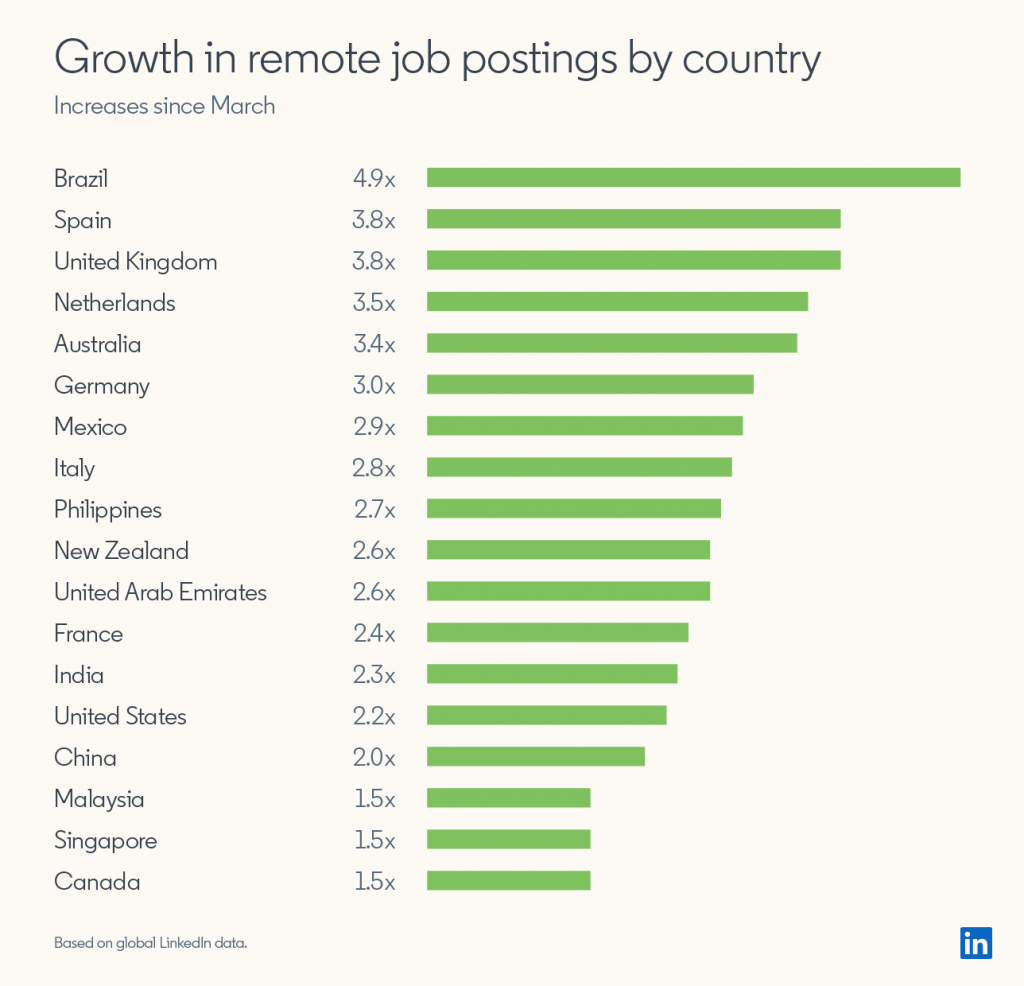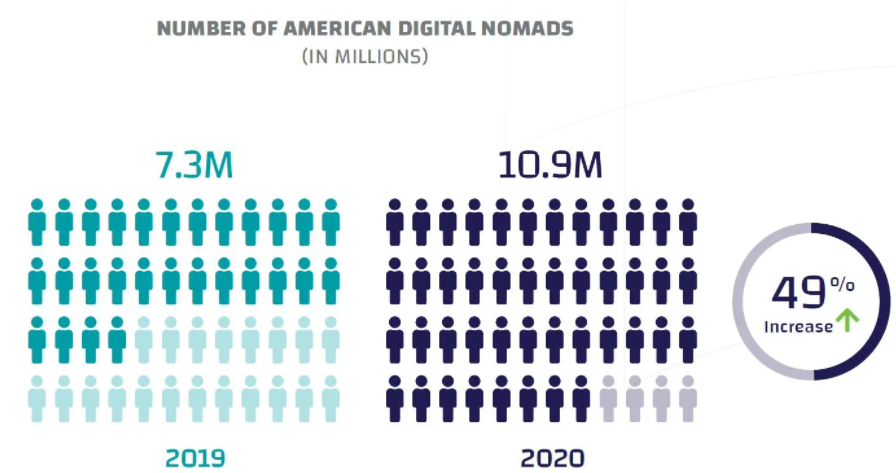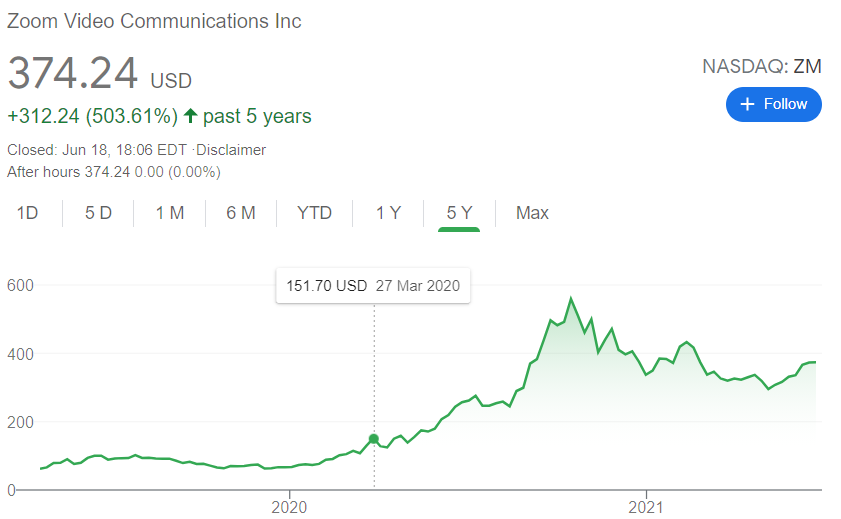18 months since the beginning of the global pandemic, remote work has changed significantly. Many companies switched from in-office to fully-remote work. Let’s see what are the 10 things this pandemic changed in remote work.
Table of Contents
More remote offers
Only between March 2020 and July 2020, number of remote offers on LinkedIn has almost tripled:

What’s more, the number of remote offers increased significantly all over the world:

It only confirms that remote work has become much more popular than ever. Remote workers have more opportunities now, which also makes companies offering better conditions to be competitive.
Many remote work newbies
In March 2020, many companies were forced to switch from in-office presence to fully-remote working. The global situation showed to such companies that remote work is possible and – surprise – it works ? Even if it was unimaginable for them before.
Having more remote work newbie companies is in general a good thing, but it also has its dark sides…
Pathological remote work popularization
Unfortunately, many companies were not prepared for switching to remote work. No one taught them the right principles, like asynchronous communication or good organization of their online environment.
This led to popularization of what I like to call a pathological remote work. Many companies basically transferred their in-office habits into the online world. It means a lot of meetings, often without agenda and inviting many people. Because some managers didn’t know how to control their employees away from the office, they decided to stay in constant touch with them via meetings and calls. Instead of leveraging the advantages of remote work, they made their employees much less effective and more stressed. That’s not the remote work companies like Yumasoft fought for ?
More digital nomads
According to the research done by MBO Partners, the number of digital nomads in the USA has increased by almost 50% in 2020:

This only means that remote work changed the world. Without the pandemic, this wouldn’t have happened so quickly. I think that as soon as travel restrictions are lifted, many of those people will start traveling and leading a really nomadic life.
Better tools
Pandemic “produced” massive traffic in collaboration tools like Skype of Microsoft Teams. When most schools switched to online learning and had to use Teams, Microsoft had a lot of struggles with that. Servers were down and slow in the beginning. Which is not surprising, as the number of Teams users increased from 20 million in 2019 to 145 million in Q2 2021. It’s an increase of 625% ? Of course, during this time, the produce has been significantly improved, with more very useful features added.
It was similar with Zoom, which is visible in the surge in their stock prices since March 2020:

That’s good, not only because these companies’ shareholders made tons of money ?, but also good for all of us. These better tools will stay with us and help us to be more productive.
Better laws and rules for remote workers
While the digital nomadism is still a “gray area” in most places in the world, pandemic made some countries realizing this gap. Those few countries are offering a legal stay and taxing solutions for remote workers.
Georgia (the country) introduced Remote from Georgia program, which allows to legally stay and work remotely from the country. Portuguese island Madeira created a coworking space for digital nomads, which is free of charge.
Amongst others, the following countries have recently started offering similar solutions: Barbados, Costa Rica, Czech Republic, Croatia, Estonia and Mexico.
More work-friendly venues
While traveling the world during pandemic times, I see a lot of new working-friendly venues like cafés or coworking spaces. In Poland, because of COVID-19 restrictions, many places transformed from being a café to a rented coworking space. This all means that remote workers will have more laptop-friendly places to choose from ?
Working from home to stay
After many companies implemented remote work and tried it in practice, home office will stay with us for good. I really hope that most companies will treat allowing their employees working from home at least a few days a month a casual thing.
In today’s world, with well-development online collaboration software, there are no reasons for tying employees to offices. Let’s use this somehow forced remote work movement for something good and maximally leverage it ?
More asynchronous communication
Except of the new, pathological online work environments, many companies did it well ? It includes popularizing asynchronous communication, which should be a default when working remotely.
Measuring work done, not hours
The companies who transformed into remote work properly, noticed that they don’t need to measure employees’ productivity by the exact working time.
In offices, most companies used some kind of clocking. Either you clocked your employee card when entering and exiting the office or reported your working hours in some kind of internal time tracking application. It was very comfortable for employees. In theory, you could have spent your whole day on the meetings without doing anything productive. But your working day was still counted. If your manager then asked why the project is progressing so slowly, you could always say that you had to attend a lot of meetings. This was easy ?
With proper remote work, managers prefer to measure the work results, not the clocked in hours. It’s important what and how fast you deliver, not how much you exactly work. This is a plus for well-organized and productive people, while it should motivate those meetings fans to work more productively. What is sure, is that remote work changes the way we measure performance.
Remote work after pandemic
I hope that most good things, like more remote offers, better tools and home office as a standard will stay with us after the pandemic is over. While COVID-19 crisis is still an unbelievable and terrible thing, let’s try to get some good from it. We are continuing to hire remote professionals at Yumasoft because we believe that remote work can be even more effective than constant in-office collaboration.
What are your thoughts? How has your company managed with introducing remote work? Did you do it well, or there are still some caveats? ?




